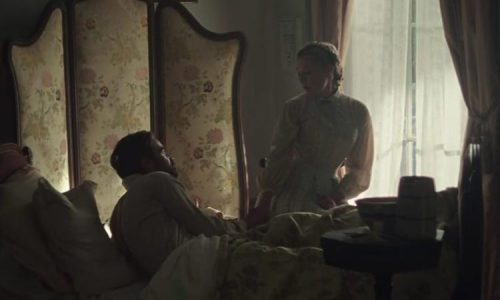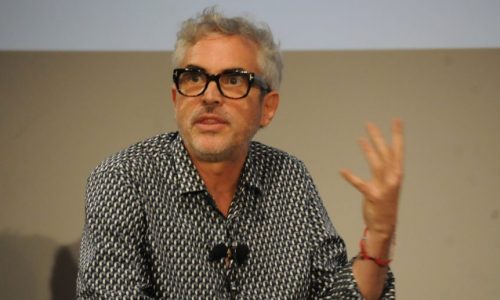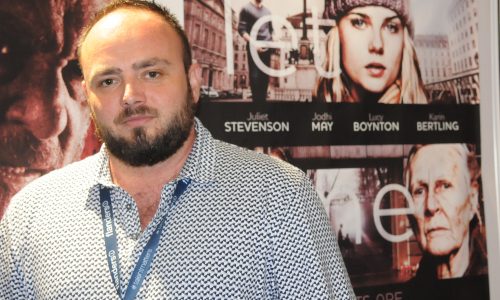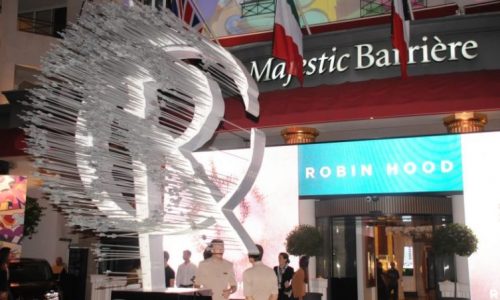
It was another early start for one of the most hotly anticipated competition titles of the year; Sofia Coppola’s remake – or re-imagining – of Clint Eastwood’s 1971 US civil war era drama, The Beguiled. I was particular keen to see it in the light of some early suggestions that the film was so poor, people were laughing at it. Colin Farrell teams up with Nicole Kidman for a second time in the competition as he reprises Eastwood’s role as a wounded union soldier, taken in and treated by staff and pupils at a girls’ boarding school in the South. In both films, Corporal John McBurney works his way, one by one, and to varying degrees, into the affections of various members of the female household – until the mood changes and they close ranks against him. It is true that in Coppola’s telling of the tale, there were slightly stunned howls of laughter at a handful of lines of dialogue – but they’re so off-beat that it seems more likely that she’s unexpectedly playing it for laughs. People were laughing with her, not at her, more so at the women’s efforts to outdo each other in their attempts to win his attention than some of the peculiarly off-kilter lines of dialogue. This, however, doesn’t make it a classic on the scale of the original – it’s a dark tale – both thematically and chromatically – a claustrophobic examination of the power of sexual attraction, particularly in a case where a group of women rarely get to see a man, let alone a vulnerable, attractive young soldier. But the efforts to inject humour feel somewhat clumsy, giving the film an uneven tone.
I might have been able to give you a little more information about what was going on in the mind of the director and stars, had my hour long wait to get into the press conference not ended in the frustration of being left outside. Even my blue badge wasn’t powerful enough to get me inside a press conference for one of the most commercial films in the competition.
Having failed to get into the press conference, I had a little head start on myself to catch-up with my work, so I popped into the UK Film Centre, to see who was around and use the wifi. I caught up with film-maker Ornella Hawthorn Gardez, reconnected with someone I’d met at the American Pavilion’s Queer Night party, who proudly showed me that he had got better pictures of the Beguiled stars on his phone, watching them leave the press conference to get into their limousines as I’d taken outside the press conference itself. I also got chatting to William Oldroyd, who recently won critical plaudits for his period drama Lady Macbeth. The success of his debut feature has enabled him to hook up with one of the biggest sales agents in the business, Protagonist, to push his next project, an adaptation of Walter Mosely’s novel The Man in my Basement.
With the market quietening down a little, I went for a walk up the Croisette to get a typically French crepe for lunch, before returning to the Palais to get into another highly popular event – the Gravity director Alfonso Cuarón was giving what was billed as a “masterclass” but was more of a public chat to a critic, around some clips from his films. More queueing was involved, as was some slightly nervous anticipation about which language it might be in, since he’s a Mexican director and we were in France. The obvious compromise? English. Thank you film business.

“My journey is not one I’d recommend,” he began, as he discussed how his route to directing was via being what he called a “blue collar film-maker,” carrying boom, operating camera, editing and writing. From very early on in his career, he became close friends with his fellow Mexican, Guillermo del Toro, who was sitting in the front row of the audience to jog his memory when required. Cuarón claims never to have watched his films once he’s moved on to the next one. “Some directors consider their films to be their babies,” he suggests. “I consider them to be ex-wives.”
It’s not until you sit and listen to Cuarón speaking enthusiastically about his career that you realise just how long and varied it has been. For most people, he is the director of one of the most visually arresting space disaster films of recent years, bursting with state of the art special effects, but for many, he’s the director of the stripped back, low budget coming-of-age Mexican drama, Y Tu Mama Tambien. In between, his credits include the dystopian Children of Men and even the third Harry Potter film, The Prisoner of Azkaban. When he was offered this film, he recalls, he moaned to del Toro that he’d been hired to do a children’s film. “Have you read the book?” asked del Toro. “No,” he remembered, “But it’s a children’s book.” “Stop being so fucking arrogant and read the fucking book. Then call me back,” shouted del Toro, before slamming down the phone. Cuarón read the book. Then his first action as director was to order Daniel Radcliffe to watch Francois Truffaut’s Les 400 Coups – the film which, incidentally, first got me excited about cinema.
But this was all a second wind for his career. He’d previously made some films in his native Mexico and then shot a couple of movies in Hollywood, including Ethan Hawke and Gwyneth Paltrow in a modern-day version of Dickens’ Great Expectations. Even though the compere picked out an impressive scene for the audience to watch, this film had given Cuarón pause for thought. Was this what he wanted to be doing? Hollywood had, he said, convinced him that he was “just a hack – a director for hire. I had to find myself again,” he recalls. He moved back to Mexico, shut himself away to watch piles of VHS tapes of the classic films that had made him want to work in film and sat down to write a film that meant something to him. That was Y Tu Mama Tambien, which he described as not just a coming-of-age film for the characters, but also for his country. The talk was interesting, rather than inspiring. It was more for film fans than film professionals. But no-one can complain about getting the opportunity to hear one of the most versatile and successful directors of his generation discussing his work.

As ever, Cannes is an amalgam of many different things – from festival screenings, both in and out of competition, panel discussions and talks by the talent, both for the public and for the press, parties and receptions of course, but it’s in the market, deep in the bowels of the Palais, in the Riviera exhibition centre and in the hotels and plush apartments lining the Croisette, where the deals are done. Last year, one of the hot topics on the business side of Cannes was what effect a vote for Brexit might have on the industry. This year, companies have had a few months to come to terms with the result of the referendum. At one end of the spectrum, Britain’s main film body the BFI has been assuring foreign investors and UK producers alike that it should have little or no impact. But on the market floor, where the films are bought and sold, there’s similarly little concern. One of the many companies selling their wares this year is Evolutionary Films, which produces, sells and distributes movies – from action and thriller titles to a drama starring Juliet Stevenson and a John Lennon documentary. Its CEO John Adams says that the British film business will remain very strong, as exporting films in English will always give British film-makers access to the huge American market. And he says UK companies are benefiting from the fall in the pound since the Brexit result, as the industry works in US dollars. “Actually, the exchange rate fluctuations, certainly in term of what’s been going on over the last year, have benefited our sales company because our dollar sales are worth much more.”

After dinner with a New Zealand producer, Nicola Peeperkoorn, here in Cannes to raise money for a documentary about the band The Chills, I headed off to a reception at the Majestic Hotel. I was a little embarrassed, not having had a chance to return to the apartment, to turn up to a do where everyone else was suited up in jeans and a T-shirt. The first battle, as anywhere else in Cannes, was the security, and my camera bag has so many pockets, the security guards couldn’t be bothered to search them all, so they shoved it on the floor for the dog to sniff. Thank goodness the snack police at the Palais confiscated my cereal bar the other day. Once inside, it turned out that I’d got my timings wrong, so I had time to get back to the apartment and change after all. This time I returned on my scooter, just in time for the formal part of the evening, which was speeches from the Global Citizen organisation, which encourages members of the public to become activists for good causes, specifically to try to eradicate the education deficit in the third world. They gave examples of how their members bombarded the Norwegian prime minister with tweets until she pledged $250m to global education programmes and how the former French government under Francois Hollande committed $2m. The organisation stages concerts and events for its supporters, but rather than buying tickets, members have to earn them by doing good deeds.

With the formalities out of the way, it was time to enjoy the hospitality, but despite detailed instructions, it was almost impossible to work out what any of the somewhat surreal finger-food items were – items such as green goop with a creamy topping and something that looked not dissimilar to a tiny penis, resting on a bed of salad, bore no relation to anything on the menu. At least the dessert was more straight forward; multi-coloured macaroons, cheese-cake blocks and I’m pretty sure I recognised a strawberry on a stick. At one point, I seemed to be being followed around by one of two women in dresses just eccentric enough to have been classed as uniforms. She seemed to be trying to take my photograph. Did she work for HP, who were hosting the event, I asked. Yes, she replied. So she must have been recording who was there. A few moments later, she came running up to me with a photograph of myself. If I’d have known the other little device in her hand had been a portable HP photo printer, the same size as her phone, I might have smiled.
